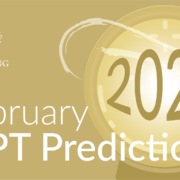How To Analyze Your Bar Exam Score Report
How To Analyze Your Bar Exam Score Report
If you have taken the bar exam and received your results, you likely have access to your bar exam score report. Depending on where you took the exam and whether you passed or failed, you may have access to a wealth of information that can help you better plan for your next time taking the bar exam. Your score report can also help you to simply understand how you performed on test day. In this post, we cover how to analyze your bar exam score report as well as use that analysis to improve your score!
How To Analyze Your Bar Exam Score Report
State Score Reports Differ
How much information you have access to on your score report largely depends on where you took the bar exam. In some states, whether you passed or failed also impacts the information you receive. For example, many states provide a complete breakdown of the examinee’s total score. These states provide the score the examinee received on the written portion of the exam, including each essay and each performance test, as well as the examinee’s score on each of the seven Multistate Bar Exam (MBE) subjects. In these states, examiness receive this information regardless of whether the examinee passed or failed the bar exam.
However, some states provide a detailed breakdown of the examinee’s score only if the examinee failed the bar exam. Other states provide this information only if the examinee passed the bar exam! When a state does not provide a detailed breakdown of the examinee’s score on the examinee’s bar exam score report, the report often contains only the examinee’s total score and the examinee’s score on the MBE portion of the bar exam.
Still, other states provide only the minimum amount of information on the examinee’s score report, regardless of whether the examinee passed or failed. This means that the examinee’s score report will contain only the examinee’s total score and the examinee’s score on the MBE portion of the bar exam.

Access to Essays and Performance Tests
In addition to issuing a score report, many states provide examinees with the option of obtaining their responses to essays and performance tests. For examinees who took the Uniform Bar Exam (UBE), this means that many states provide access to the examinee’s responses to both the Multistate Essay Exam (MEE) and the Multistate Performance Test (MPT). Note that not obtaining MEE and MPT responses is not available in all states. Also, be sure to keep in mind that examinees usually don’t automatically receive their exam responses. Most states require examinees to request these documents and charge a small fee for the service.
How to Analyze Your Bar Exam Score Report and Identify Areas of Improvement
Once you have your bar exam score report, take some time to sit down with your score report and analyze each section. Not sure where to begin? Follow the steps below!
Start with Your Overall Score
Looking at the top of your bar exam score report, you should be able to find your overall score. Additionally—and especially if you did not pass—you may find your state’s passing score requirement. These numbers provide you with the first information you need to analyze your bar exam score report.
Keep in mind that different states have different passing scores. For the UBE, a passing score can range from 260 to 273 out of a possible 400 points. States that do not administer the UBE frequently have different scoring methods, so a passing score can look very different.
Now, take your state’s bar exam passing score requirement and subtract your total bar exam score. This number will give you the number of points you need to increase your score by to pass the bar exam in that jurisdiction. For example, if your state’s bar exam passing score is 266 and your total score is 258, the number of points you need to increase your score by to pass in that jurisdiction is 8. If you scored a 258 and your state’s bar exam passing score is 270, you need to increase your score by 12 points.

Big or Small Increase Needed?
Knowing how many points you need to increase your bar exam score to pass is a great starting place. Next, you can analyze your report to begin planning for the bar exam.
5 or fewer points needed to pass
If you only need 5 or fewer points to pass the bar exam next time, you are likely in good shape! If your total bar exam score is this close to passing, you may not need to make any major or drastic changes to your approach. You might already know what did not go as smoothly the last time you studied. In the following sections of this article, we will talk about how to use the additional information in your score report to earn those few points so you pass the bar exam next time!
6 to 12 points needed
If you need to increase your score by 6 to 12 points to pass the bar exam, you are in good company. Many students who do not pass the bar exam fall into this category. If you are in this category, you likely need to make some substantial changes to your approach to allow you to pass the bar exam next time. Now is a good time to begin reflecting on what might have not gone well during your bar exam preparation. Ask yourself some questions: Did I complete my commercial bar exam prep course? Did I submit essays and performance tests to a grader? How did I approach MBE questions? Did I complete enough? Did I take timed practice tests? How did I approach the MPT? The answers to the questions can help you begin the process of planning for the next bar exam!
12 or more points needed to pass
If you need to increase your score by 12 or more points to pass the bar exam, you need a new approach. This is the time to take a good look at how you prepared for the bar exam. In addition, to asking yourself the questions in the paragraph above, you should also consider the following issues: How did I feel about my bar preparation materials? Were they easy to use and comprehend? Did I have good outlines? Was my commercial bar prep comprehensive without being overwhelming? Did I devote enough time to studying? Did outside obligations, such as work and family, drain me of the energy I needed to adequately prepare? Do I need additional support?
If the number of points you need to pass the bar exam is greater than 20, keep in mind that it sometimes takes a bar administration (or two or more) to increase your score that much. With great materials and resources like private tutoring, we have seen students increase their bar exam scores by 30, 40, and even 50 points in a single bar exam administration! However, although a large increase in an examinee’s bar exam score is possible, it is important to maintain a realistic perspective.

MBE Score
The next step is to look at your total MBE score. This score is usually located toward the top of your score report. If your state only provides your total bar exam score and your MBE score, these two numbers are usually found very close to one another.
Not only does your MBE score tell you how you performed on the multiple-choice section of the bar exam, but it can also help you calculate your written score. Take your total bar exam score and subtract your MBE score. The resulting number is your score for the written part of the bar exam (or very close to it). For example, if your total bar exam score is a 128 and your total bar exam score is a 251, your written score is about 123. Although this number may not be exactly your written score, it will be very close. Note that you need to use this calculation only if your bar exam score report does not contain your written score.
MBE Subjects Breakdown
If your jurisdiction provides you with a breakdown of your performance on the MBE, it will likely be presented as a percentage of examinees who scored lower than you did on the MBE. This means that if the percentage next to Civil Procedure is 27.7, 27.7% of examinees scored lower than you did on Civil Procedure MBE questions. This also means that you scored lower than 72.3% of examinees. The lower this number is, the weaker your performance was on that subject on the MBE.
How to Interpret the Numbers
These numbers can provide you with important information. First, you can learn how you performed on every subject on the MBE. For example, if your percentage in Civil Procedure was 27.7, Civil Procedure is a subject you probably need to spend more time on during your next bar exam preparation. If your percentage in Real Property is 9.8, you should focus significant effort on Real Property. However, if your percentage in Real Property is 85.6, you can likely spend less time on Real Property and focus more of your time and energy on other subjects. Note that this does not mean that you can ignore Real Property! Even if you performed well on an MBE subject, you need to spend some time reviewing and making sure you remember that subject so that your score on that subject does not drop as you attempt to raise your score in other subjects.
Also, your MBE score breakdown can provide information on how you perform on MBE questions in general. For example, if all your MBE subject scores are low, you probably need to revisit how you are approaching MBE questions. Additionally, this can be an indicator that you need to spend some time understanding and memorizing the law. If your scores on some MBE subjects are high and others are low, this may mean that you have a good approach to answering MBE questions and just need to spend more time understanding the law, memorizing the law, and applying the law in the lower-scoring subjects. Similarly, if your scores are high in most MBE subjects with just a few lower-scoring subjects, you likely have a good approach to answering MBE questions and need to focus on the law in those lower-scoring subjects.
No MBE Subject Breakdown
If your state does not provide a breakdown of your MBE score by subject, you have less information to work with! This is unfortunate, but you can still use yoru MBE score to help you prepare for the next bar exam.
Lower MBE Score
If your MBE score is lower than about half of the total passing score requirement for your state, you need to increase your MBE score. For example, if your state’s passing score is 266, your goal should be to earn around a 133 on the MBE. Keep in mind that you can still pass the bar exam with a lower score on one section of the bar exam so long as you earn a higher score on the other sections. For example, if you earn a 130 on the MBE but a 14o on the MEE/MPT, you can still pass the bar exam in a jurisdiction whose passing score is a 266! If your MBE score is 121, you should try to increase your MBE score by about 12 points in a jurisdiction with a passing score of 266.
Higher MBE Score
You may find that your MBE score is higher than half the total passing score for your state, yet you still failed the bar exam! This means that although you are good at answering multiple-choice questions and your ability to answer the written portion of the bar exam needs work. This can be a good position to be in because increasing one’s score on the written portion of the bar exam is typically easier than increasing one’s MBE score. This may also mean that you have a good understanding of the law, but you need to work on memorization or need to improve your essay or performance test writing technique. Again, be careful not to ignore the MBE as you prepare for the next bar exam so that your MBE score does not drop as you attempt to raise your written score.

Written Score
As mentioned above, states differ in how they present an examinee’s written score. Your state may provide you with just the score, a complete breakdown of how you performed on the written portion of the bar exam, or not provide any score for the written portion. If your state did not provide you with a written score, see above for how to calculate your written score using your MBE score.
If your written score is much higher than your MBE score (especially if it is greater than half of your state’s total passing score), you probably need to spend focus time and energy on the MBE techniques without neglecting the writing skills that earned you the higher written score.
Essay or MEE Subjects
If your score report provides a complete breakdown of the written portion, you will probably have a numerical list of the essays and your score for each. Some jurisdictions will also provide you with the subject(s) tested on each essay, but many do not. If the subjects are listed on your score report, you can easily see how you performed on each subject. If the subjects are not listed, most jurisdictions allow you to request your written answers.
Most jurisdictions use a score of 1 to 6 to score the essays and the performance tests, although some states use a 1 to 7 range and others a 1 to 10 range. Other states, such as California, score the written portion of the bar exam quite differently. In jurisdictions that use a 1 to 6 scale, a score of around a 4 is usually considered passing, so that is a good score to set as your goal.
If your scores are in the 3 to 4 range, you probably know how to write a pretty good essay but may need to improve your knowledge of the law. Additionally, there may be room to improve your essay-writing skills if your scores are in this range. If all your scores are in the 1 to 2 range, you probably need to reassess your approach to essay writing. Additionally, you’ll want to make sure you are spending enough time learning and memorizing the law. As mentioned earlier, improving your essay-writing skills is an efficient way to increase your overall bar exam score. If some of your scores are high and others are low, you likely have good-essay writing skills, but your knowledge of the law is not uniform.
Performance Test or MPT
In most states, the performance test is scored the same way as the essay portion of the exam. So, if your state scores the essays on a 1 to 6 scale, your performance tests should be scored the same. Some jurisdictions provide the type of performance test that was administered (objective memorandum, persuasive brief, etc.), but many do not.
Because the performance test is different from the rest of the bar exam, students sometimes have higher- or lower-than-expected scores on this section. It is not uncommon for an examinee to have performed reasonably well on the MBE and the essay portion of the bar exam but have scored low on the performance test.
If your MBE and essay scores are higher than your performance test scores, you probably need to spend some dedicated time focusing on the MPT. If your essay scores and MPT scores are both low, this is likely an indication that your overall writing approach needs work. Finally, if your MPT scores are higher than your MBE and essay scores, you may have had experience writing legal tasks but you may not have spent enough time learning the law.
No Written Score Breakdown
If your state does not provide you with a breakdown of your written score, you can still compare your MBE score to your overall written score. Although this does not provide you with as much information as a breakdown of your written score would, you can see how you are performing overall.
If you did not pass the exam and your MBE and written scores are similar to each other, this is an indication that you need to spend more time learning the law/memorizing. If your MBE score is higher than your written score, you likely need to improve your approach to writing essays and performance tests. Likewise, if your written score is higher than your MBE score, you probably need to assess how you answer MBE questions. This might mean changing your approach or the type of quesiton you use when you practice.
Conclusion
Your bar exam score report can provide you with vital information about how you performed on test day. We encourage you to use that information to plan your strategy for success the next time you take the bar exam!
Looking to Pass the Bar Exam?
Free Resources:
- 🌟Bar Exam Free Resource Center: Access our most popular free guides, webinars, and resources to set you on the path to success.
- Free Bar Exam Guides: Expert advice on the MBE, the MEE, passing strategies, and overcoming failure.
- Free Webinars: Get insight from top bar exam experts to ace your preparation.
Paid Resources:
- 🏆One-Sheets: Our most popular product! Master the Bar Exam with these five-star rated essentials.
- Bar Exam Outlines: Our comprehensive and condensed bar exam outlines present key information in an organized, easy-to-digest layout.
- Exclusive Mastery Classes: Dive deep into highly tested areas of the MBE, MEE, MPT, and CA bar exams in these live, one-time events.
- Specialized Private Tutoring: With years of experience under our belt, our experts provide personalized guidance to ensure you excel.
- Bar Exam Courses: On Demand and Premium options tailored to your needs.
- Bar Exam Crash Course + Mini Outlines: A great review of the topics you need to know!
🔥 NEW! Check out our Repeat Taker Bar Exam Course and our new premier Guarantee Pass Program!







Leave a Reply
Want to join the discussion?Feel free to contribute!